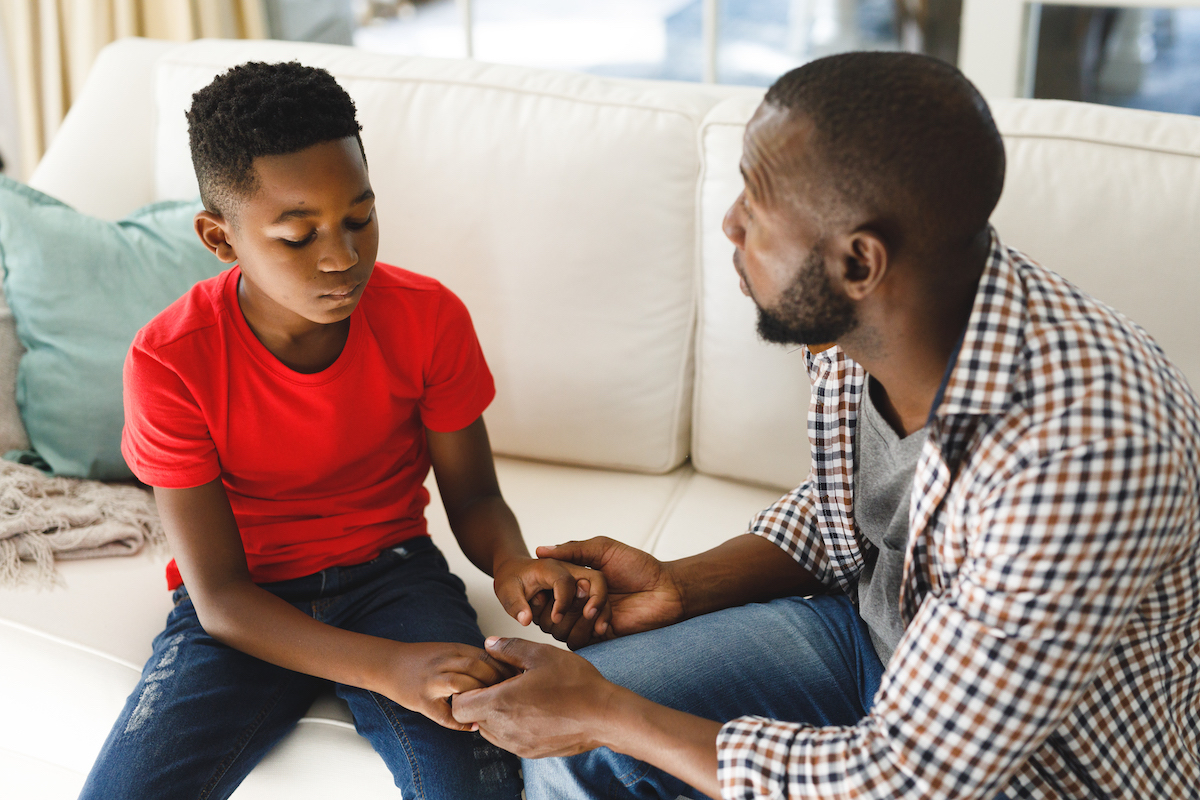Talking to your child about bullying can be tricky, but it’s important. PACER’s National Bullying Prevention Center reports that one out of five K-12 students say that someone bullied them in the past year. The incidence rate is higher for some groups, such as students who are between ages nine and twelve or those who have disabilities or who identify as being LGBTQ.
Bullying is “when someone aggressively uses their ‘power’ to target another individual with repeated, unwanted words or actions. Those targeted are hurt either physically or emotionally and have a hard time stopping what is happening to them.” Bullying is different than conflict. Conflict involves two people who don’t have a difference in power and who want to work out a disagreement they have.
Although it doesn’t always feel this way as we raise our children, remember that most children want to talk to their parents or other important adults about tough subjects such as bullying. They will likely be relieved and grateful that you opened the door to talk, even if they’re also nervous about the conversation.
Stopbullying.gov offers helpful tips on ways to talk about bullying with your child, including (see the article for more detail on each tip):
- Start talking about bullying now.
- Have thoughtful talks with your child every day.
- Use your experience to help them talk about theirs.
- Talk about bullying in a general way.
- Specifically, you can discuss instances where:
- Your child witnessed bullying;
- Your child isn’t sure what happened was “bullying”;
- You’re concerned that your child might have been bullied or cyberbullied, but they aren’t talking about it;
- Your child was bullied or cyberbullied; or
- Your child bullied someone.
If your child has an Individualized Education Program (IEP) or Section 504 Plan because they have a disability, remember that means your child’s school district is obligated to provide your child a Free and Appropriate Public Education (FAPE) in your child’s Least Restrictive Environment (LRE). If someone is bullying your child at school, the IEP or 504 Team (including you) should update your child’s IEP to include interventions to address the bullying so that your child continues to receive a FAPE. This handout from PACER explains more about addressing bullying on IEPs and 504 plans.
We are also happy to support you with any of these issues as you think through how you want to help your child. You can call us at 601-355-0915 or email us at info@faams.org.

